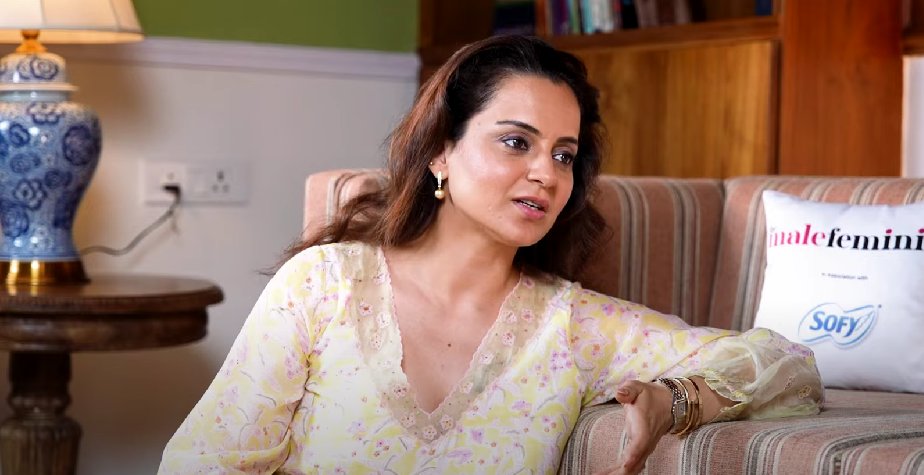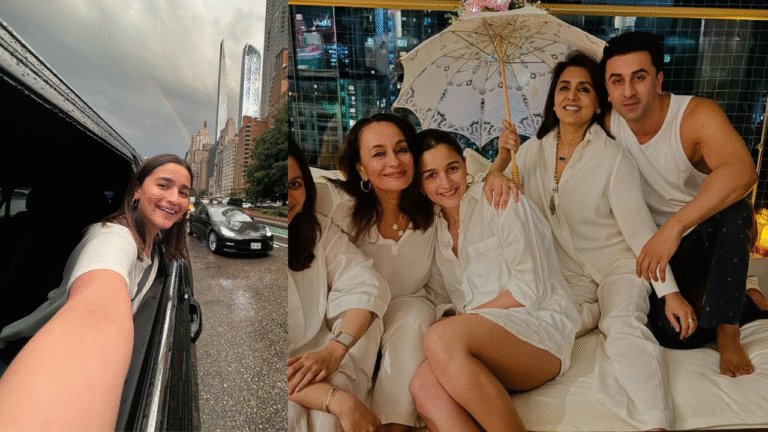Kangana Ranaut’s Mom Threw Her Dollhouse Over Late Periods
Kangana Ranaut Opens Up About Delayed Periods and Childhood Trauma
In a recent interview, Kangana Ranaut opened up about a deeply personal childhood incident that has sparked a broader conversation around menstruation taboos in Indian society. Speaking to digital media platform Hauterrfly, she recalled how her mother threw away her dollhouse because her menstrual cycle was delayed — a decision rooted in fear and misinformation rather than care.
According to Kangana Ranaut, most of her classmates had entered puberty by the time they reached middle school. However, as her own periods were delayed, anxiety began to grow within the household. She explained that her mother became increasingly worried and felt that something was “wrong” because her daughter was still spending time playing with dolls. In a moment that has stayed with her ever since, her mother angrily removed the dollhouse from her room and disposed of it, believing that childhood behaviour was somehow “holding back” her growth.
The actress went on to describe the morning when she finally began menstruating. Kangana Ranaut said she woke up confused and frightened after finding blood on her bedsheet. Although she initially feared she might have fallen ill or injured herself, her mother responded with visible relief and even happiness. The contrast between her own panic and her mother’s relief made the experience emotionally complicated, and one that she did not fully understand at the time.
During the interview, Kangana Ranaut noted that the mindset surrounding menstruation in her family was heavily influenced by patriarchal values and older generational beliefs. She explained that a tragic medical incident — the death of a newborn male child in a hospital — led her grandmother to insist that no woman in the family should ever give birth in a hospital again. As a result, Kangana Ranaut herself, along with her eldest aunt and her own mother, were all born at home. She believes such rigid thinking also filtered into other areas, including how puberty and menstruation were perceived.

What makes this revelation particularly important is the fact that it is coming from a public figure like Kangana Ranaut, who has often spoken out about social issues. Many young girls grow up in environments where menstruation is considered embarrassing, and are left to deal with their first experience without basic guidance or emotional support. The actress’s willingness to speak about her past has led to a wave of responses online, with people saying that her memory of losing the dollhouse reflects a much wider problem across Indian households.
In an effort to encourage social reflection, Kangana Ranaut emphasised the importance of talking openly about puberty and menstruation instead of associating it with fear or shame. She pointed out that children — especially girls — need clarity and encouragement, rather than confusing signals that link natural biological processes with moral judgement. Her comments have already been widely shared by women’s rights advocates and menstrual health organisations, many of whom say that her story could play a role in normalising conversations around the issue.
Social media users also reacted strongly, saying that while the detail about the dollhouse may sound small, it symbolises a larger emotional loss. Some pointed out that many girls grow up believing there is something “wrong” with them if they develop earlier or later than their peers — and that parental reactions often deepen that insecurity. The fact that Kangana Ranaut still remembers this moment so clearly indicates how powerful such childhood messages can be.
As public interest in her comments continues to rise, some experts have suggested that this may lead to more families having honest discussions with their children. They argue that stories like the one shared by Kangana Ranaut can help dismantle harmful cultural beliefs passed down from previous generations, and replace them with empathy and knowledge.
In the end, Kangana Ranaut framed her experience as a reminder of how important it is for parents to educate themselves before reacting out of fear. “We need to create an environment where girls do not associate their first period with shame,” she said during the interview. While the dollhouse was lost long ago, the emotional impact of that moment continues to shape her views — and now, by sharing this story, she hopes that fewer young girls will have to go through the same confusion and silence.
Also Read: iPhone 17 First Look: Apple Just Changed Everything (Again)
A tech-driven content strategist with 6+ years of experience in crafting high-impact digital content. Passionate about technology since childhood and always eager to learn, focused on turning complex ideas into clear, valuable content that educates and inspires.







